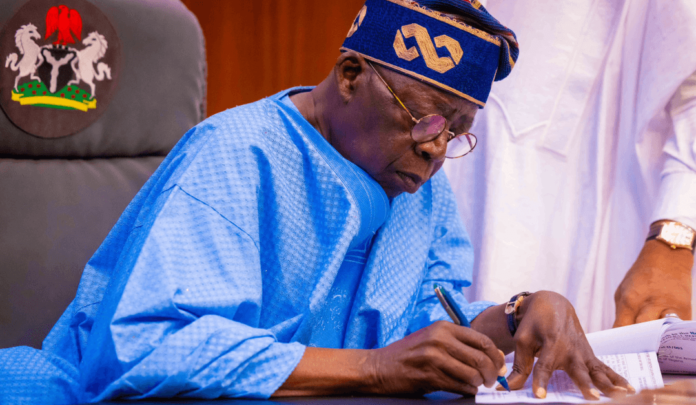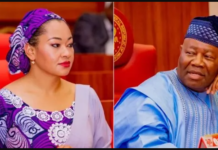Tinubu discovers treasury lost $46b to oil theft in 11 years
By Jeph Ajobaju, Chief Copy Editor
Nigeria lost $46.16 billion to crude oil theft between 2009 and 2020 apart from losing $10.7 billion yearly to fuel subsidy, according to findings by the Energy and Natural Resources subcommittees of the Advisory Council of President Bola Tinubu.
The treasury has lost a total $56.86 billion to fuel subsidy, going by figures in the Policy Advisory Council (PAC) report dated May 2023, which was prepared when Tinubu was then President-elect, per The PUNCH.
The report disclosed $70 billion investment has been lost in the petroleum industry since 2011 due to the absence of the Petroleum Industry Act (PIA), which was signed by former President Muhammadu Buhari in 2022 after gathering dust for decades as a bill in the National Assembly (NASS).
The PAC found that, at 7 per cent, Nigeria’s revenue to Gross Domestic Product (GDP) ratio was among the five lowest in the world.
“Insecurity is a major sector challenge. $46.16 billion was lost to crude oil theft between 2009 and 2020. $10.70 billion lost annually to PMS [petrol] subsidy and inefficiencies associated with the purchase, distribution, and sale of PMS,” the report said.
“Governance and regulatory concerns have eroded investor confidence, diverting private capital needed for the development of critical oil and gas infrastructure.
“Cumulatively, these have reduced the energy sector contribution to economic growth and deprived citizens of the necessary infrastructure and social amenities required for improving living standards.”
Targets the PAC set for Tinubu to achieve in his first 100 days in Aso Rock include:
- Unification of foreign exchange (forex) rate
- Reorganisation of the Nigeria Upstream Petroleum Regulatory Commission (NUPRC)
- Reorganisation of the Nigeria Midstream and Downstream Petroleum Regulatory Authority (NMDPRA)
- Reorganisation of the agencies to deliver set targets
- Headhunt for and put capable people in critical positions
__________________________________________________________________
Related articles:
Oil marketers can’t raise N10b each to restock depots
SERAP sues Tinubu to court for failing to probe missing $2.1b, N3.1tr fuel subsidy funds
Abuja suspends payment to MDA contractors
__________________________________________________________________
Appointment of competent, tested technocrats
“Head-hunt competent, tested, reform-focused leaders in NNPCL (Nigerian National Petroleum Company Limited), ensuring its function as commercial entity per PIA (Petroleum Industry Act); paying taxes, royalties and profit to Federation Account and properly regulated by NUPRC/NMDPRA/NCDMB,” the report added, per The PUNCH.
“Deregulate PMS pricing and implement Federal Direct Cash Transfer Programme. Signal determination to end insecurity in oil producing states (Imo, Delta, Ondo, Rivers, Bayelsa, Akwa-Ibom) by engaging key political and community stakeholders.
“Reform the operations of the military task force with clearly defined KPIs (Key Performance Indicators) and consequent management to tackle deficiencies.
Improve financing, agree on cash call arrears and debt repayment framework. Transition to market prices for gas.”
The PAC also
- Counselled that, within 18 to 24 months, Tinubu should “mandate the NNPCL and NUPRC/NMDPRA to close out outstanding divestments and contract issues for project delivery clarity.
- “Strip NNPCL of policy making roles and keep NCDMB within its Act mandate. Consider integrating NUPRC, NMDPRA, and NCDMB into a single regulator or include all midstream activities into NUPRC scope.”
- Advocated for the expansion of domestic gas reserves and a diversified oil and gas industry by implementing reforms in the PIA, including “network code.”
- Advised Tinubu to develop a sustainable financing model and to facilitate a third-party gas pricing framework for export market.
- Urged him to create fiscal enablers for natural gas and deepwater via the Finance Act, and expand stabilisation in the PIA to cover full credit for post FID (final investment decision) levies and taxes.














